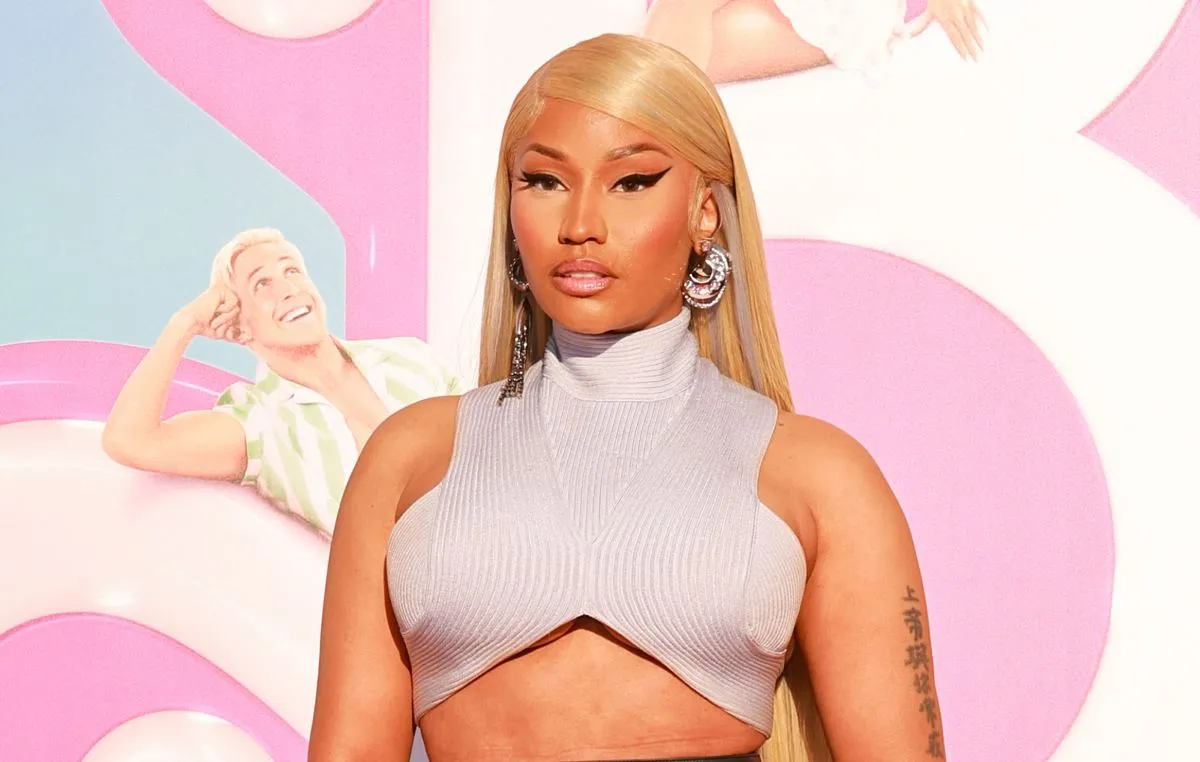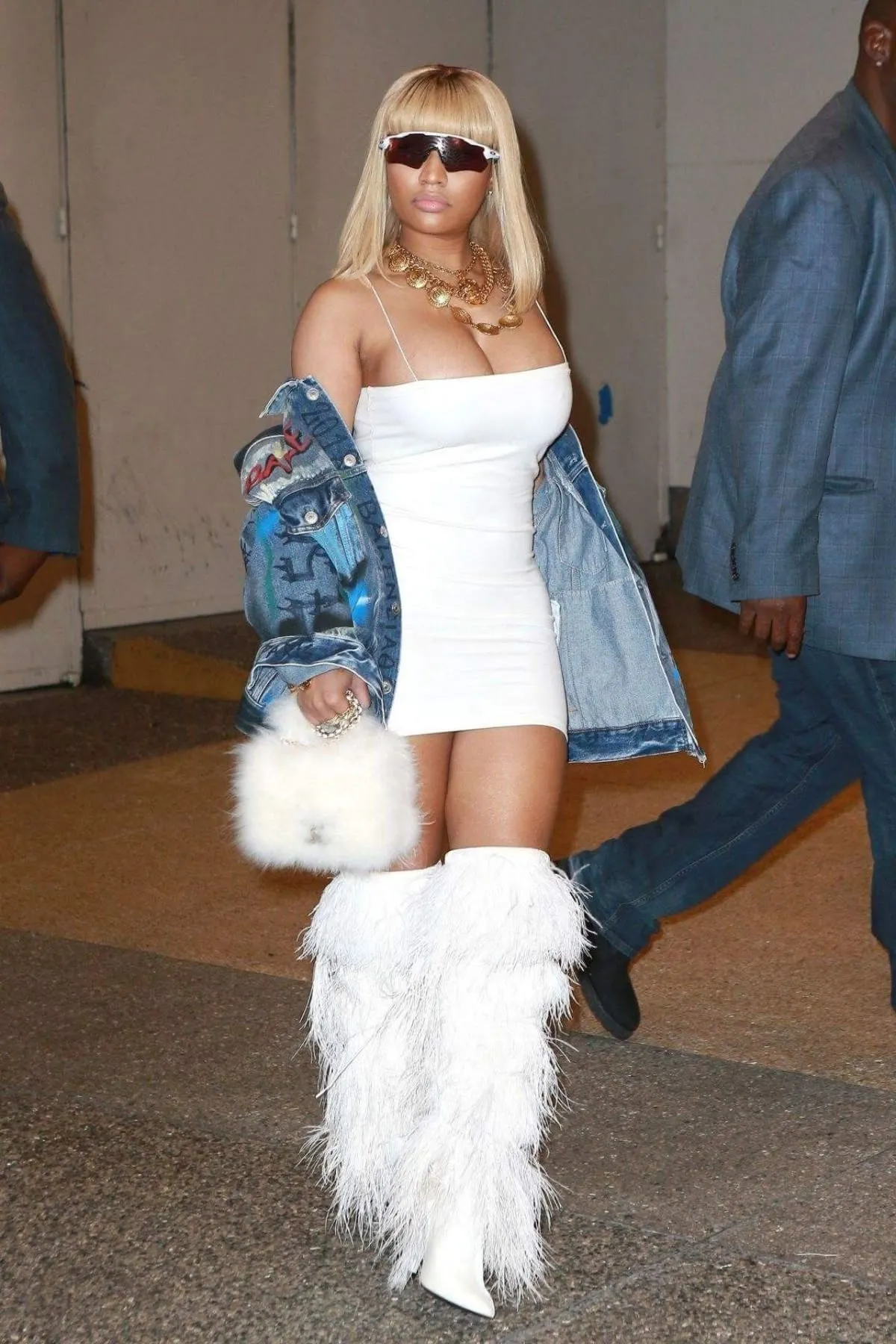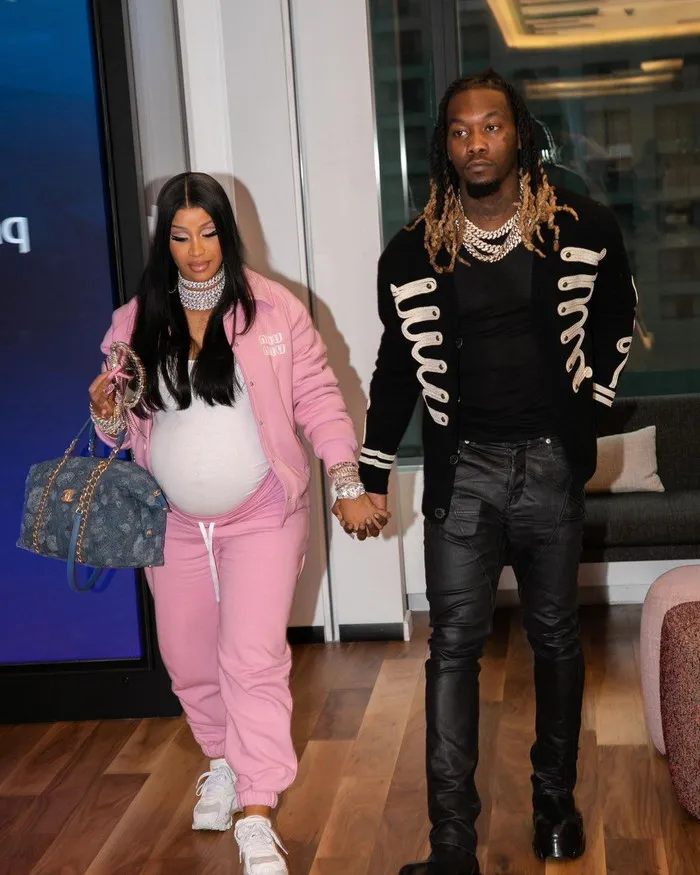

Young Thug Wins $1.6 Million Lawsuit Against Counterfeit SP5DER Merch Sellers
In a bold legal move that has caught the attention of fans, fashionistas, and business moguls alike, Young Thug has emerged victorious in a massive lawsuit against 22 businesses, many of which are based in China, for selling unauthorized SP5DER merchandise. With a $1.6 million judgment in his favor, the Atlanta rapper has once again proved that while his rhymes may break records, his business acumen can break the bank. Let’s break down the details of this victory and what it means for the future of celebrity branding, counterfeit merchandise, and perhaps a few lessons for aspiring entrepreneurs.
A Legal Knockout
In case you’ve been living under a rock (or maybe just too busy listening to Thugger’s latest hits), SP5DER is Young Thug’s streetwear brand, one that’s taken over the fashion world with its unique and eye-catching designs. The brand’s success reflects Thugger’s creativity and influence, extending far beyond music to make its mark in the fashion world. But as is often the case with hot-ticket brands, imitation isn’t just the sincerest form of flattery—it’s also a serious business problem.
The lawsuit, which saw Young Thug and his team taking on counterfeit sellers, alleged that these 22 businesses were distributing unauthorized SP5DER gear without permission. According to the lawsuit, these businesses were selling fake SP5DER apparel to consumers worldwide, potentially damaging the brand’s reputation and revenue. And the courts were quick to agree: the judge slapped each defendant with a hefty $75,000 in statutory damages. In total, that adds up to a cool $1.6 million.
The decision marks a significant win not only for Young Thug but also for the larger conversation about intellectual property rights, particularly in the music and fashion industries. For a public figure like Thugger, who’s managed to seamlessly blend his musical artistry with his entrepreneurial spirit, protecting his brand from counterfeiters is crucial for maintaining his authenticity and market value.
The Road to Victory
The case wasn’t just about monetary damages—it was a statement. Counterfeit merchandise is a huge issue in the fashion world, and it’s not just about the loss of profits. It’s about the dilution of brand identity, the undermining of hard work, and the potential for misleading consumers. Young Thug, who has cultivated a unique persona both on and off the stage, made sure to stand his ground and protect the integrity of SP5DER.

By winning this lawsuit, Thugger has set a precedent for other artists and entrepreneurs looking to protect their brands from illegal merchandise sales. This decision sends a strong message to counterfeiters worldwide: mess with SP5DER and you’re going to pay the price. Not only that, but it also emphasizes the importance of intellectual property in today’s global marketplace.
It’s also worth noting the involvement of international businesses, many of which are based in China. Counterfeit merch production and distribution often occur on a global scale, and the international aspect of this case highlights the challenges of policing counterfeit sales across borders. In the past, similar cases have faced difficulties due to the sheer volume of international counterfeit operations, but the ruling in this case shows that the legal system is adapting and making strides to ensure that international sales are not a free pass for counterfeiters.
SP5DER’s Rise and Its Legal Battle
Before delving deeper into the business ramifications, it’s important to understand the rise of SP5DER itself. Launched by Young Thug as an extension of his brand, SP5DER is much more than just a clothing line. It’s an embodiment of his creative vision, his lifestyle, and his influence over the culture. The line features edgy designs, bold graphics, and a streetsmart aesthetic that aligns with the artist’s persona.
From its inception, SP5DER has been well-received by both fans and fashion critics. The brand’s success is a direct reflection of Young Thug’s influence—not just in the rap game but across multiple industries. So, it’s no surprise that the rapper would go to great lengths to ensure his creations aren’t being ripped off by unscrupulous businesses looking to cash in on his hard-earned success.
As much as SP5DER is about style, it’s also a symbol of Thugger’s business savvy. In the same way that he redefined the sound of modern hip-hop with his unconventional flow and genre-blurring approach, he’s also reshaped what it means to be a multi-hyphenate artist. He’s not just a rapper—he’s a brand. And his success in this legal battle shows that he’s willing to fight tooth and nail to protect that brand.
The Fashion Industry’s Fight Against Counterfeits
The rise of online shopping, especially in the age of social media influencers and direct-to-consumer marketing, has made it easier than ever for counterfeiters to flood the market with fake goods. Consumers can easily stumble upon a cheap knockoff of their favorite brand without realizing they’re being duped. But this problem isn’t just an annoyance for consumers—it’s a serious issue for brands, both big and small.
For young entrepreneurs or lesser-known brands, seeing their designs ripped off by faceless overseas manufacturers can be devastating. Not only does it lead to financial losses, but it can also erode the trust between the brand and its customers. That’s why intellectual property rights are such a vital part of the fashion industry, especially in the age of global commerce.
Brands like SP5DER are a prime example of how the fashion world and the music industry have become so intertwined. As the lines blur between music, fashion, and lifestyle brands, protecting a brand’s identity and designs becomes more crucial than ever. Artists like Young Thug are leading the charge, using both legal tools and public awareness campaigns to protect their intellectual property and ensure their fans are getting the real deal.
The Bigger Picture
While the $1.6 million settlement is a massive win for Young Thug, the true victory lies in the larger conversation about how the entertainment and fashion industries are evolving. The rise of celebrity brands is a trend that shows no sign of slowing down, and with it, the importance of protecting those brands from counterfeiters will only increase.
This legal battle also shines a light on the importance of international cooperation when it comes to enforcing intellectual property laws. As more artists venture into the world of fashion, they will need to navigate the complexities of global commerce and counterfeiting. Young Thug’s victory is a step in the right direction, but it’s clear that the fight against counterfeiters is far from over.
So, next time you see a suspiciously cheap SP5DER hoodie online, remember: it’s not just a shirt; it’s part of a much larger battle over intellectual property. And while Thugger may have scored a massive win in court, his legal triumph is also a win for the future of celebrity-driven brands everywhere.
Young Thug’s $1.6 million legal victory is more than just a win for the rapper—it’s a message to counterfeiters everywhere. In a world where authenticity is king, the fight for brand integrity is not just a legal battle but a cultural one. Whether you’re a fan of Thugger’s music, his fashion line, or simply rooting for the underdog, there’s no denying that this lawsuit has sent shockwaves through the world of entertainment and business. If there’s one thing we can take away from this, it’s that Young Thug isn’t just a rap icon—he’s a business mogul, and he’s here to stay.



















